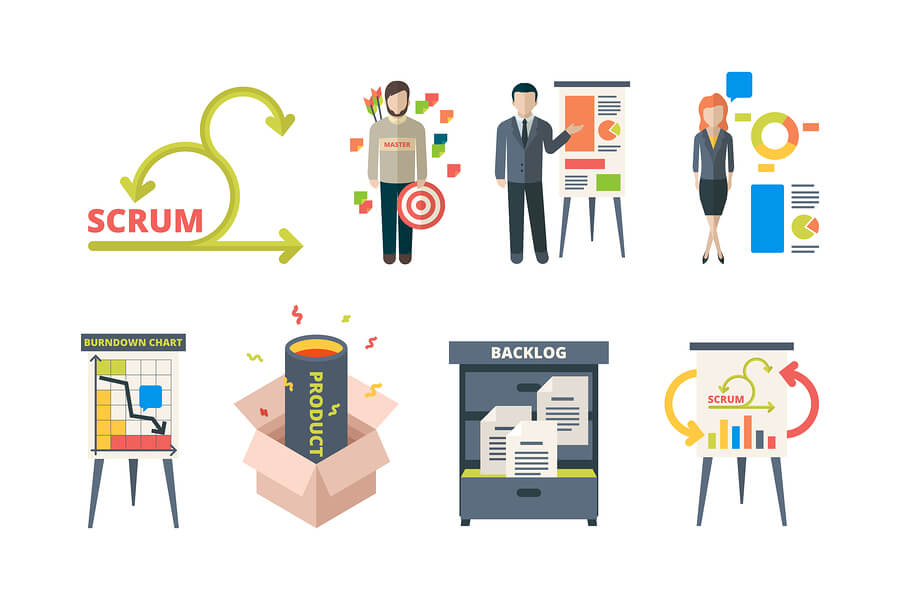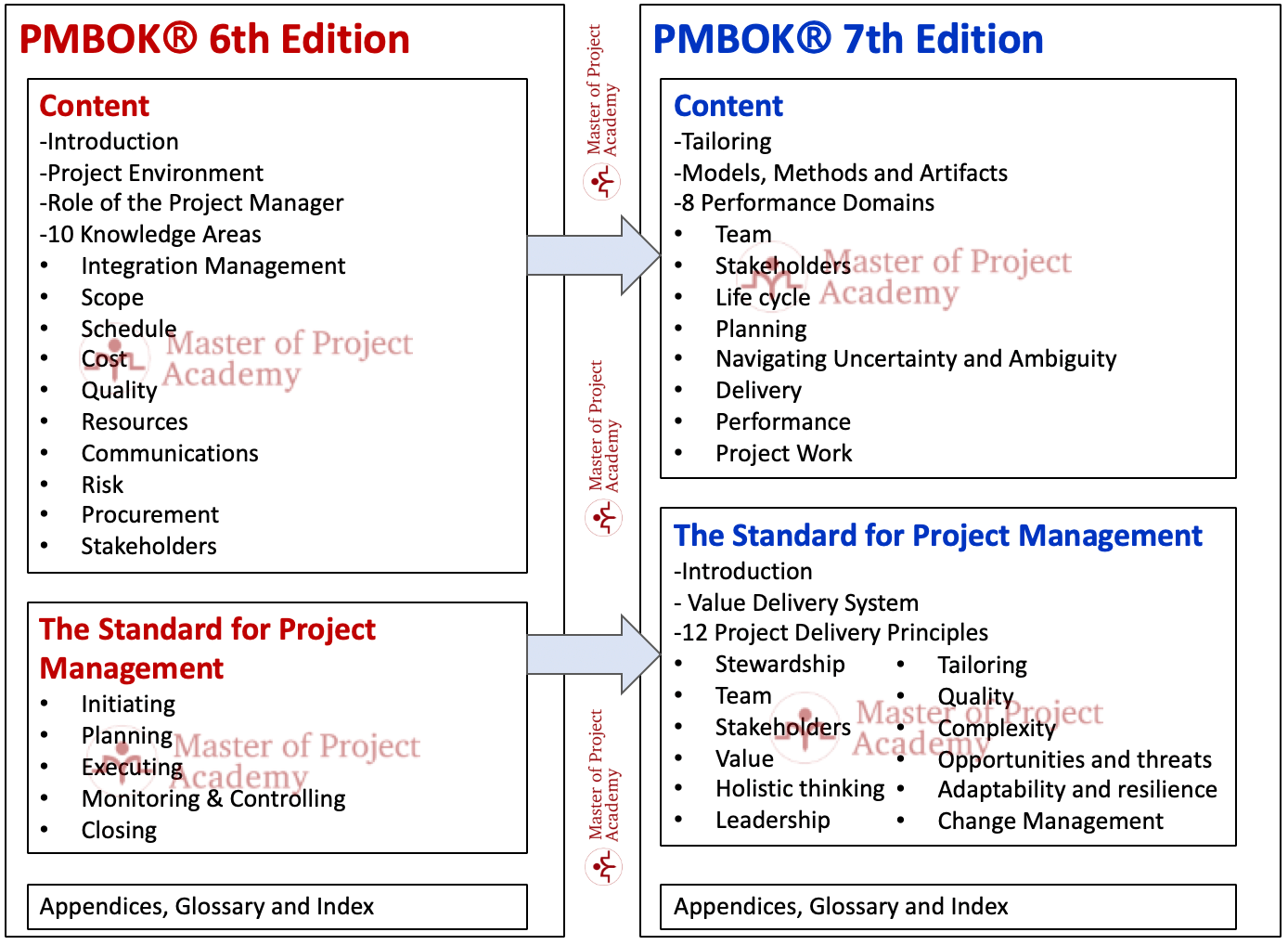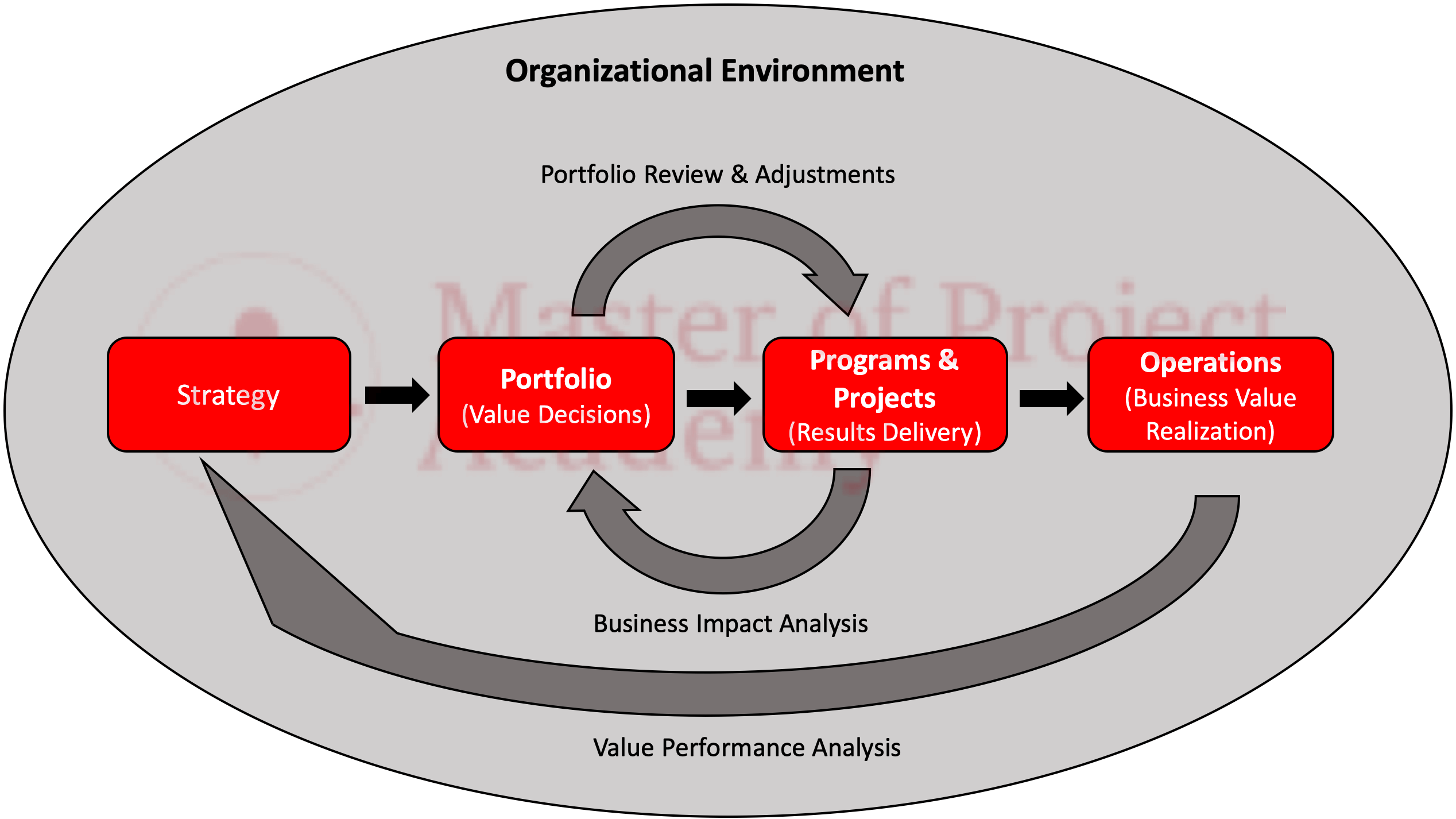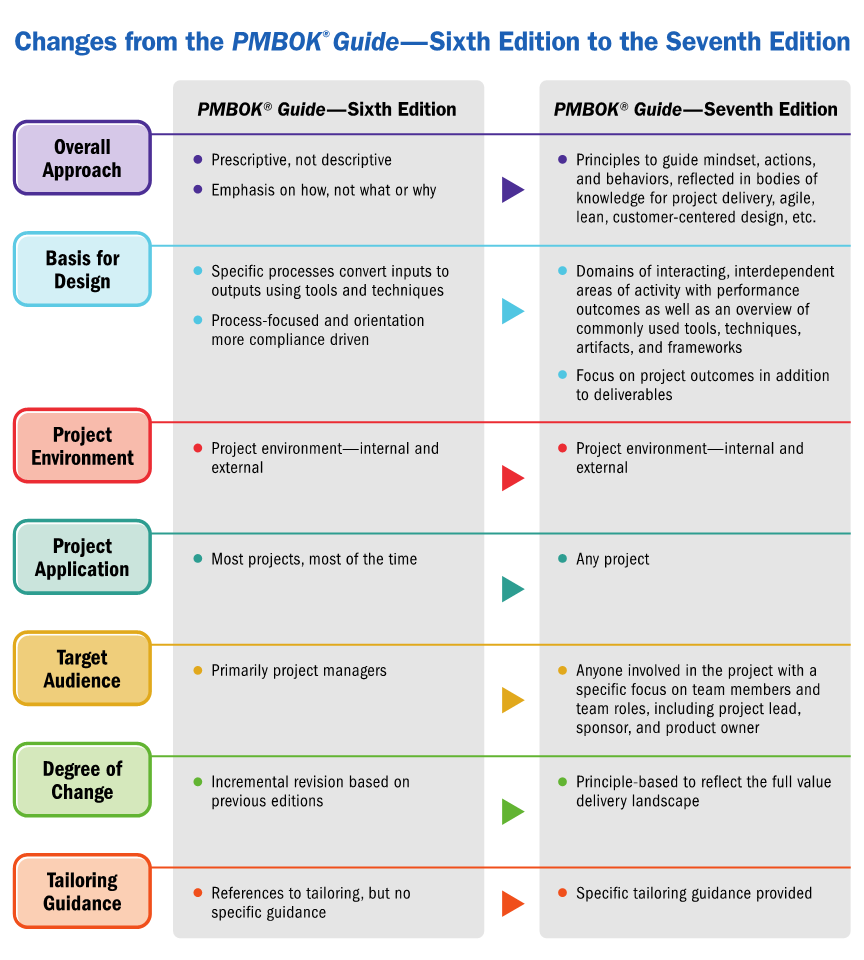Systems Analysis And Design In A Changing World 7th Edition Free Download UPDATED
Systems Analysis And Design In A Changing World 7th Edition Free Download
9 min. read
PMI appear the PMBOK® seventh Edition exposure draft in January 2020 for the review of the projection management community. PMBOK 7th Edition volition exist released on the 1st of Baronial, 2021. If you are looking to get your PMP certification, PMBOK is one of the most important resources when getting set for the PMP exam. Near of the PMP training providers prepare PMP study materials and resources based on the PMBOK content. Therefore, PMBOK seventh edition will be the guide for PMP and CAPM certification tracks of PMI and the training providers will be updating their materials based on this change.
Nourish our 100% Online & Self-Paced 1-Hour Gratuitous PMP Training.

We have gone through the PMBOK 7th Edition Exposure Draft, PMI resources regarding PMBOK 7th changes, and tried to detail what is changing in the new PMBOK.
When will the PMBOKseventh Edition be published?
Based on PMI pages, PMBOK seventh Edition is scheduled for release on the 1st of Baronial 2021. However, the PMP test will not be based on PMBOK 7th Ed right subsequently release. We are expecting that the PMP exam volition exist based on PMBOK 7th Ed past January 2022. This will give time to training providers to update their training content based on the new PMBOK changes.
Why is PMBOK® changing?
Until at present, PMBOK was mainly focusing on waterfall project management techniques. Nonetheless, with the fast footstep of technology, competition is harsher than information technology was never earlier. Production life cycles are shorter and requirements of the product or project tin can change over time depending on the progress of the project.
With conventional project direction approaches, information technology is not possible to welcome chop-chop changing requirements to the projects. That is why agile projection management methods and approaches emerged in the 2000s. These agile frameworks started to be adopted by many organizations in project management, peculiarly in the It and software manufacture.

PMP is the most reputable project management certification around the world with almost ane 1000000 PMP-certified professionals. PMBOK is the backbone of the PMP certification exam content. Since the project direction dynamics, pop frameworks, and trends are changing, PMBOK must be relevant to the changing dynamics of the project direction profession every bit well. That is the master reason why PMBOK is irresolute every 3 to five years.
Lookout man Alan's "New" PMP® Test Journey Interview
What is changing in PMBOK Guide – Seventh Edition
If yous would ask me to summarize what is changing in PMBOK 7th Edition in ane sentence, I would say
PMBOK 7th Edition will be based on principles rather than processes and it will be much shorter than the electric current edition.
Depending on the project characteristics, industry, requirements of the stakeholders and organization, project managers tend to apply different approaches when delivering projects. These approaches can exist predictive, agile, hybrid or waterfall. The important indicate is, project management standards must non exist favoring one approach on some other. Projection management standards must focus on successful project and value commitment.
Scout our "What is changing in PMBOK® Seventh Edition?" video
Principle vs Process-Based Projection Management
In PMBOK Seventh edition, project management standards will be principle-based rather than processes. There are PMBOK cognition areas in current and previous PMBOKs and each noesis surface area has processes, inputs, tools, techniques, and outputs. These processes will not be bachelor in PMBOK 7th Edition. There will exist principles that are mostly accustomed and practiced in project management. While current and previous PMBOK editions were focusing on deliverables, evolving project dynamics focus on overall project outcomes and new PMBOK will focus on outcomes rather than deliverables.
This does not hateful that procedure-based approaches are not relevant or useful anymore. Many organizations and project direction practitioners go on to use conventional project management delivery methods. Conventional approaches remain relevant in the context of PMBOK 7th Edition too.
In PMBOK 7th Edition, projects do not only produce products or deliverables. Projects deliver outcomes and these outcomes bring value to the organisation and its stakeholders.
Visual Summary of PMBOK seventh Edition Changes
Based on PMBOK 7th Edition exposure draft and PMI announcement post-obit are the changes from PMBOK sixth Edition to PMBOK seventh Edition.

There are three introduction chapters in PMBOK and and so x cognition areas in PMBOK 6th Edition. In PMBOK 7th Edition, instead of knowledge areas, there will exist performance domains.There volition be Tailoring, Models, Methods and Artifacts chapters equally well.
PMBOK 6th Edition has 5 project management process groups: initiating, planning, executing, monitoring & decision-making and closing. These are referred to as the five stages of a project lifecycle too. For each knowledge area, there are processes belonging to these process groups. For instance, the estimate costs process is a process belonging to the planning process grouping and cost management knowledge expanse.
In PMBOK 7th edition, there will be a shift from the process-based approach to the principle-based approach. There volition be 12 Projection Delivery Principles and a Value Delivery System. The Value Delivery System will focus on delivering valuable outcomes rather than deliverables. Projects are fundamental components of the Value Delivery Organization and principles will guide the Project Managers, Squad Members and stakeholders on how to achieve intended outcomes to deliver value to the organization and stakeholders.
Value Delivery System

The figure above shows the "Value Commitment System" approach coming with PMBOK seventh Edition. Based on this system, strategies, missions or objectives of an arrangement decides the next portfolios or investments. Portfolios can include sub-portfolios, programs or projects. To ensure the objectives of the portfolios, program and projection delivery must reach its intended targets. Based on the outcomes of the projects, business impacts are analyzed and portfolios are reviewed or adjusted for hereafter steps.
In one case the projects are delivered successfully, expected business values must exist earned to the organization besides.This is chosen "Business Value Realization". Based on the realized business organization values and outcomes of the delivered projects, organizations derive their strategy to initiate new portfolios.
Projection teams can produce outcomes by using different delivery approaches. For some projects, activities might be articulate and the results can exist achieved past completing the activities. Nonetheless, for some projects, in that location might be ongoing activities, monitoring and elaborating the outcomes of previous activities to determine the next steps in the project. The "projection management" might not be an appropriate term for some projects. Therefore, "project delivery" is used instead of "projection management" in PMBOK seventh edition to cover outcomes likewise equally deliverables of a project.
Project Delivery Principles
There will be 12 principles in PMBOK 7th edition and these principles define the "what" and "why" of the projection delivery. Project delivery principles describe a fundamental truth, norm, or value and not prescriptive. In order to ensure the intended outcomes of the project delivery, project team members must follow these principles. The post-obit are the 12 principles.
![]()
1-) Stewardship: Be a diligent, respectful, and caring steward.
2-) Squad: Build a culture of accountability and respect.
3-) Stakeholders: Engage stakeholders to understand their interests and needs.
iv-) Value: Focus on value.
5-) Holistic Thinking: Recognize and reply to systems' interactions.
vi-) Leadership: Motivate, influence, coach, and larn.
7-) Tailoring: Tailor the delivery approach based on context.
eight- ) Quality: Build quality into processes and results.
9-) Complexity: Address complexity using cognition, experience, and learning.
x-) Opportunities & Threats: Address opportunities and threats.
11-) Adjustability & Resilience: Exist adjustable and resilient.
12-) Change Direction: Enable modify to achieve the envisioned future land.
New Platform Coming with PMBOK Seventh Edition: The Standards Plus™ Interactive Digital Content Platform
The Standards Plus™ interactive digital content platform will exist linked to PMBOK seventh Edition via the Models, Methods and Artifacts section. This platform volition reflect "how to…" about current, emerging and future practices, methods, artifacts, and other useful information. Standards Plus aims to start with ITTOs from PMBOK Sixth Edition and incorporate new resources since the project direction is evolving.
Visual from PMI Regarding Changes from the PMBOK sixth Edition to the PMBOK seventh Edition
PMI recently shared the following visual regarding the changes from PMBOK sixth to 7th Edition.

How is PMBOK® Updated?
Post-obit is the half dozen-footstep followed by PMI to update PMBOK.
- PMI charters a volunteer committee to develop or update a standard.
- The volunteer commission drafts and/or refines an existing standard.
- A group of subject thing experts review initial drafts of the standard and provide feedback to the committee.
- The commission revises the draft standard and prepares a document for public review and comment. The committee considers input from the public and may revise the standard in response. -> We come across the PMBOK exposure draft at the cease of this footstep.
- The final standard is presented the PMI Standards Consensus Committee which consists of volunteers from the profession for final validation.
- The new standard is submitted for approved by the PMI Manager, Standards & Publications before it is released
PMBOK Seventh Edition exposure draft has been published for public review and comment on 15 January 2020 and review/comment was available until fourteen February 2020. Based on the reviews and comments, PMI will be working on the development of PMBOK seventh Edition. The planned release date for PMBOK Seventh Edition is August 1st, 2021.
Summary of PMBOK Seventh Edition Changes
We have gone through the exposure draft of PMBOK 7th Edition and PMI announcements to review what the changes will exist in PMBOK seventh Edition. The biggest modify is the shift from "process-based project management" to "principle-based project commitment". Instead of processes, inputs, outputs, tools, and techniques, project commitment focuses on principles and outcomes.
Knowledge areas will not be existing in PMBOK anymore. There will exist performance domains.There volition be a new digital platform: Standards Plus linked to PMBOK. This platform volition bear witness electric current, emerging and future project commitment practices for the apply of project practitioners.
PMI is planning to release PMBOK Seventh Edition past August 1st, 2021. Y'all can read almost the previous July 2020 changes in our PMP examination changes post. The latest modify to the PMP exam happened on Jan 2nd, 2021.
The PMBOK 7th Edition has radical changes and a big change from waterfall project management techniques to active and holistic projection delivery methods. We recommend preparing and sitting for the PMP exam before the changes. Y'all can nourish our PMP grooming before the changes.
DOWNLOAD HERE
Posted by: adamsproatest.blogspot.com
Publicar un comentario for "Systems Analysis And Design In A Changing World 7th Edition Free Download UPDATED"